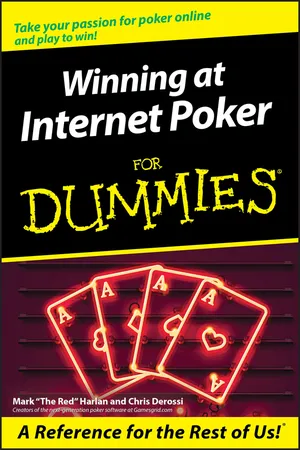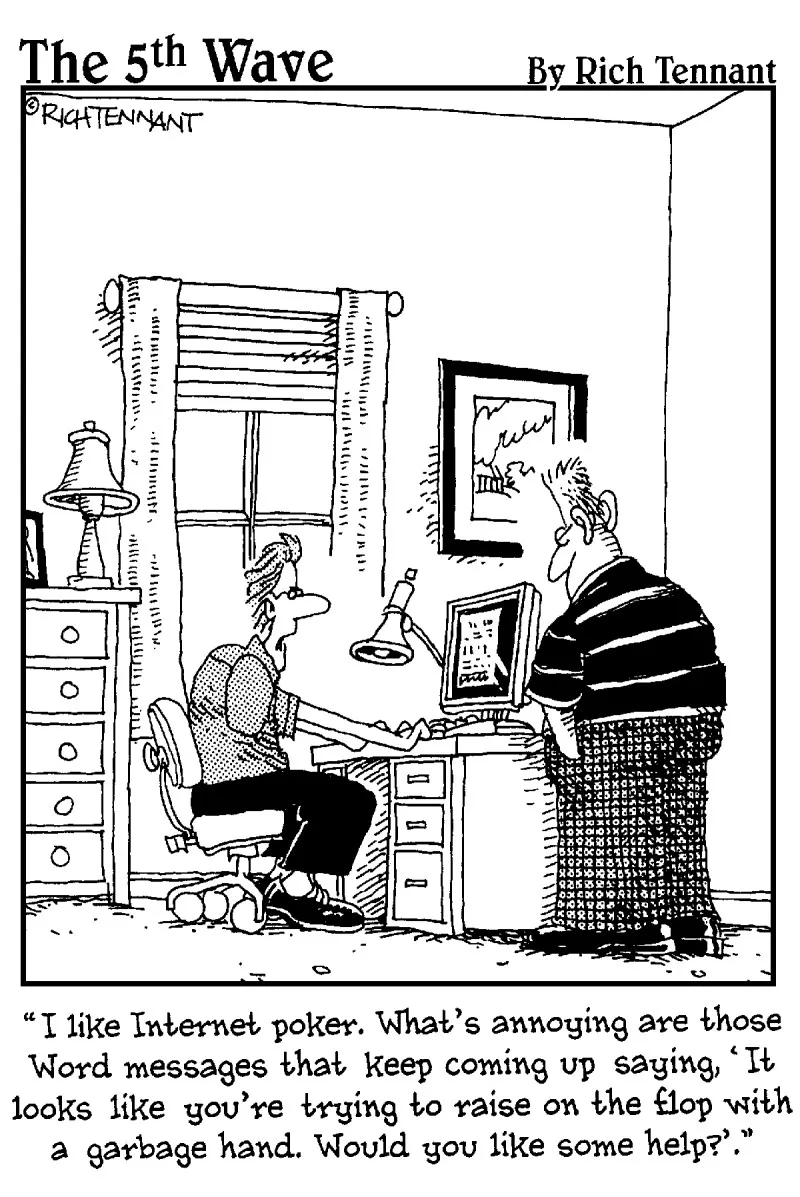
- English
- ePUB (mobile friendly)
- Available on iOS & Android
Winning at Internet Poker For Dummies
About this book
Take poker online the fun and easy way! Five years ago, 50 million people were playing poker recreationally or professionally. Now that number is more than 100 million, including a huge influx of young people. Online betting is up nearly four-fold over the past year, with total wagers running over $30 billion. Winning at Internet Poker For Dummies provides the lowdown on the hottest game around, highlighting the best sites and virtual games and showing how to make secure online bets. The book covers setting up an account, securing funds, navigating a basic online poker game, using Internet abbreviations and lingo, observing online poker etiquette, playing popular online poker games such as Texas Hold 'Em and Omaha, devising a winning strategy, and participating in tournaments.
Frequently asked questions
- Essential is ideal for learners and professionals who enjoy exploring a wide range of subjects. Access the Essential Library with 800,000+ trusted titles and best-sellers across business, personal growth, and the humanities. Includes unlimited reading time and Standard Read Aloud voice.
- Complete: Perfect for advanced learners and researchers needing full, unrestricted access. Unlock 1.4M+ books across hundreds of subjects, including academic and specialized titles. The Complete Plan also includes advanced features like Premium Read Aloud and Research Assistant.
Please note we cannot support devices running on iOS 13 and Android 7 or earlier. Learn more about using the app.
Information
Part I
Internet Poker Basics

Chapter 1
Creating a Winning Combination: Poker, the Internet, and You
In This Chapter



Me, Winning on the Internet? You Bet!

Knowing your poker theory

Just like real money, but faster
Dealing with the dough
-plgo-compressed.webp)
Stepping Out of the Casino Mentality
Playing poker on the download
Looking for tells online
Table of contents
- Title
- Contents
- Introduction
- Part I : Internet Poker Basics
- Chapter 1: Creating a Winning Combination: Poker, the Internet, and You
- Chapter 2: Getting Online and Choosing a Site
- Chapter 3: Putting Internet Poker’s Nuances to Work in Your Play
- Chapter 4: Taking Your Cash to Cyberspace — Safely
- Part II : Taking Your Poker to a New Level — The Cyber Level
- Chapter 5: Adapting to a New World: Internet Poker
- Chapter 6: Figuring Out Your Opponents (Without Them Figuring Out You)
- Chapter 7: Exploring Your Online Game Options
- Chapter 8: Building Your Online Poker Skills (Without Going Broke)
- Chapter 9: Strategies for Short-Handed Ring Games
- Part III : Taking Over Tournaments
- Chapter 10: Perusing Your Online Tournament Options
- Chapter 11: Clueing in to Tournament Chip Standings
- Chapter 12: Winning Single-Table Tournaments
- Chapter 13: When Your Chips Are Flying: Single-Table Strategies
- Part IV : The Part of Tens
- Chapter 14: Ten Common Internet Poker Mistakes
- Chapter 15: Ten Things to Keep in Mind in the Heat of Battle
- Chapter 16: Ten Great Internet Poker Resources
- Chapter 17: Ten Mistakes to Avoid during Live Action
- Appendix: Glossary